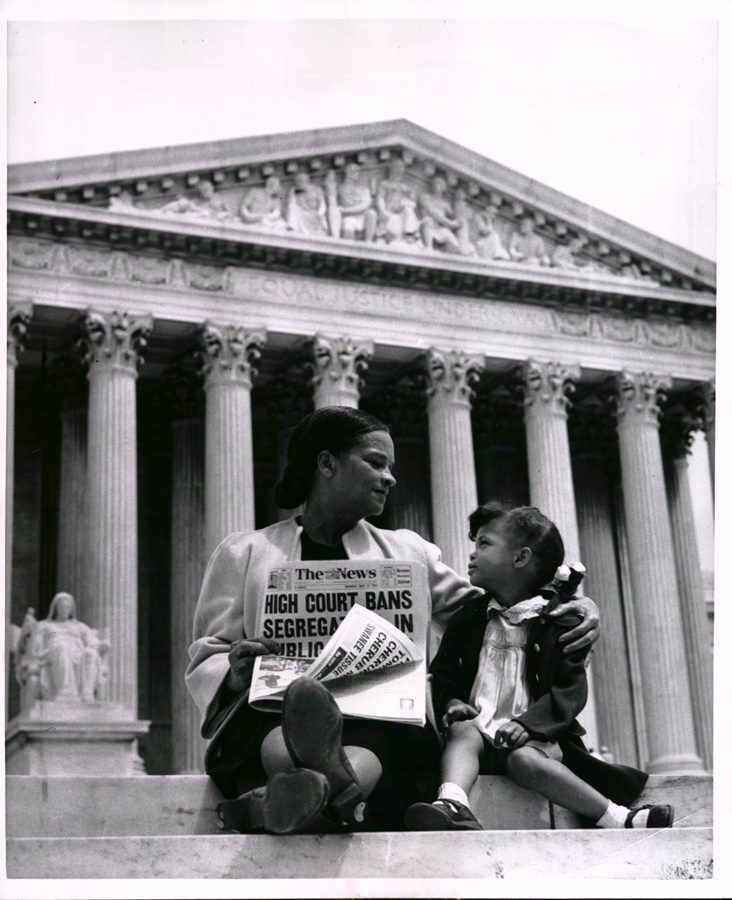Segregation no longer banned—yes, you read that right. The world’s social fabric is evolving rapidly, and the rules that once divided us are now being redefined. This is not just about laws changing; it’s about people coming together to embrace diversity, equality, and inclusivity. Imagine a world where everyone has an equal seat at the table, regardless of race, gender, religion, or background. That’s the future we’re heading toward, and it’s happening right now.
For decades, segregation was a harsh reality for millions of people around the globe. It was enforced through policies, societal norms, and sometimes even violence. But today, the tide is turning. Laws are being rewritten, communities are uniting, and voices that were once silenced are now being heard louder than ever. This isn’t just progress—it’s a revolution.
So, why does this matter? Because segregation no longer banned means more than just legal changes. It represents hope, opportunity, and a chance for every individual to live freely and authentically. In this article, we’ll dive deep into what this shift means, how it’s happening, and why it matters to all of us. Buckle up because we’re about to explore a transformative moment in history.
Read also:Dayton Basketball The Game That Keeps Fans On Their Toes
Understanding the History Behind Segregation
What Exactly Is Segregation?
Let’s rewind for a sec. Segregation, in its simplest form, is the separation of people based on characteristics like race, ethnicity, religion, or even social class. Think back to the Jim Crow laws in the United States or apartheid in South Africa. These systems were designed to keep certain groups apart, often to maintain power imbalances. And guess what? They worked—for a while.
But here’s the thing: segregation wasn’t just about physical separation. It was about creating barriers that limited opportunities, resources, and even basic human rights. It was a tool of oppression, plain and simple. And while the laws may have been abolished in many places, the effects of segregation lingered long after the ink dried on new legislation.
Key Milestones in the Fight Against Segregation
There have been countless moments in history where people stood up to say, “Enough is enough.” Here’s a quick rundown of some game-changing events:
- Brown v. Board of Education (1954): This landmark Supreme Court case declared racial segregation in public schools unconstitutional in the U.S.
- The Civil Rights Act (1964): A major victory for equality, this law prohibited discrimination based on race, color, religion, sex, or national origin.
- The End of Apartheid (1994): Nelson Mandela’s election marked the official end of apartheid in South Africa, paving the way for a more inclusive society.
Each of these milestones brought us closer to a world where segregation no longer banned wasn’t just a dream but a reality.
Why Is Segregation No Longer Banned Important?
The Power of Inclusivity
When segregation is banned, it opens doors for everyone. Imagine a classroom where kids from different backgrounds learn together, share stories, and build friendships. Or a workplace where diversity is celebrated and everyone’s ideas are valued. That’s the power of inclusivity.
But it’s not just about feeling good. Studies show that diverse teams are more innovative, productive, and successful. A report by McKinsey found that companies in the top quartile for ethnic diversity are 35% more likely to outperform their peers. So, segregation no longer banned isn’t just a moral victory—it’s a smart move for society as a whole.
Read also:Grand Ole Opry 100th Anniversary A Century Of Country Music Magic
Breaking Down Barriers
Segregation creates walls—literal and metaphorical. When we tear those walls down, we create opportunities for growth and understanding. People start to see each other as individuals rather than stereotypes. And when that happens, communities thrive.
Take cities like Toronto or London, for example. These are melting pots of cultures, languages, and traditions. And guess what? They’re also some of the most vibrant and dynamic cities in the world. That’s the magic of breaking down barriers.
Challenges in Implementing Segregation No Longer Banned
Overcoming Resistance
Change isn’t always easy, especially when it challenges deeply ingrained beliefs. Some people still resist the idea of segregation no longer banned, often citing concerns about safety, resources, or cultural differences. But here’s the truth: these fears are often based on misinformation or prejudice.
Education is key. When people learn about other cultures and perspectives, they’re more likely to embrace change. Programs like cultural exchange initiatives, diversity training, and community outreach can make a huge difference.
Addressing Systemic Issues
Even when segregation is legally banned, systemic issues can persist. Think about housing discrimination, unequal access to education, or disparities in healthcare. These are the invisible barriers that still hold people back.
The solution? Policy changes, yes, but also grassroots efforts. Communities need to come together to advocate for equality and hold institutions accountable. It’s a long road, but it’s worth it.
The Economic Impact of Segregation No Longer Banned
Boosting Economic Growth
When segregation is banned, economies thrive. Why? Because a diverse workforce brings a wealth of ideas, skills, and perspectives. Companies that embrace diversity are better equipped to innovate, adapt, and succeed in a global market.
For example, countries like Canada and Australia have thrived by welcoming immigrants and fostering inclusive environments. Their economies are stronger because they tap into the full potential of their populations.
Closing the Wealth Gap
Segregation often leads to economic inequality. When certain groups are excluded from opportunities, they’re less likely to accumulate wealth or pass it down to future generations. But when segregation is banned, the playing field levels out.
Programs like affirmative action, scholarships, and job training initiatives can help close the wealth gap. They give people the tools they need to succeed, regardless of their background.
Cultural Impacts of Segregation No Longer Banned
Celebrating Diversity
Segregation no longer banned means more than just legal equality. It’s about celebrating the rich tapestry of cultures that make up our world. From food to music to art, diversity adds flavor to life.
Think about festivals like Diwali, Carnival, or Lunar New Year. These events bring people together to share traditions and learn from each other. They remind us that while we may be different, we’re all connected.
Promoting Understanding
When people interact with others from different backgrounds, they start to see the world through new eyes. They learn to appreciate different perspectives and challenge their own assumptions. This kind of understanding is crucial in building a more peaceful and harmonious society.
Legal and Policy Changes
Key Legislation Around the World
From the Civil Rights Act in the U.S. to the Equality Act in the UK, governments have taken significant steps to ensure segregation no longer banned. But the work doesn’t stop there. Laws need to be enforced, and policies need to be updated to reflect changing societal norms.
For example, many countries are now implementing anti-discrimination laws that go beyond race to include gender identity, sexual orientation, and disability status. These laws are essential in creating a truly inclusive society.
Enforcing Equality
Having laws on the books is one thing, but enforcing them is another. Governments, organizations, and communities need to work together to ensure that segregation no longer banned is more than just a slogan. This means holding violators accountable and providing resources for those who have been affected by discrimination.
Personal Stories: The Human Side of Segregation No Longer Banned
Voices of Change
Behind every policy change is a person—or a group of people—who dared to challenge the status quo. From Rosa Parks to Malala Yousafzai, these voices have shaped the world we live in today.
But it’s not just about famous figures. Everyday people are making a difference too. Teachers, activists, and community leaders are working tirelessly to promote equality and inclusivity. Their stories remind us that change is possible when we stand together.
Impact on Daily Life
Segregation no longer banned isn’t just about big-picture changes. It’s about the little things too—the conversations we have, the choices we make, and the way we treat each other. When we embrace diversity, we create a better world for everyone.
The Future of Segregation No Longer Banned
What’s Next?
The journey toward a fully inclusive society is far from over. There’s still work to be done in areas like education, housing, and healthcare. But the momentum is building, and more people than ever are committed to making change happen.
Technology is also playing a role. Social media platforms, for example, are giving people a voice and a platform to share their stories. This kind of visibility can drive real change.
A World Without Segregation
Imagine a world where segregation no longer banned isn’t just a phrase but a reality. A world where everyone has equal access to opportunities, resources, and respect. It’s a lofty goal, but it’s one worth striving for.
Conclusion: Your Role in the Movement
Segregation no longer banned isn’t just a legal or political issue—it’s a human one. It affects all of us, regardless of our background or circumstances. So, what can you do? Start by educating yourself, listening to others, and taking action in your own community.
Share this article with your friends and family. Start conversations. Advocate for change. Every small step counts. Together, we can build a world where segregation no longer banned is the norm, not the exception.
Table of Contents
- Understanding the History Behind Segregation
- Key Milestones in the Fight Against Segregation
- Why Is Segregation No Longer Banned Important?
- The Power of Inclusivity
- Breaking Down Barriers
- Challenges in Implementing Segregation No Longer Banned
- Overcoming Resistance
- Addressing Systemic Issues
- The Economic Impact of Segregation No Longer Banned
- Boosting Economic Growth
- Closing the Wealth Gap
- Cultural Impacts of Segregation No Longer Banned
- Celebrating Diversity
- Promoting Understanding
- Legal and Policy Changes
- Key Legislation Around the World
- Enforcing Equality


